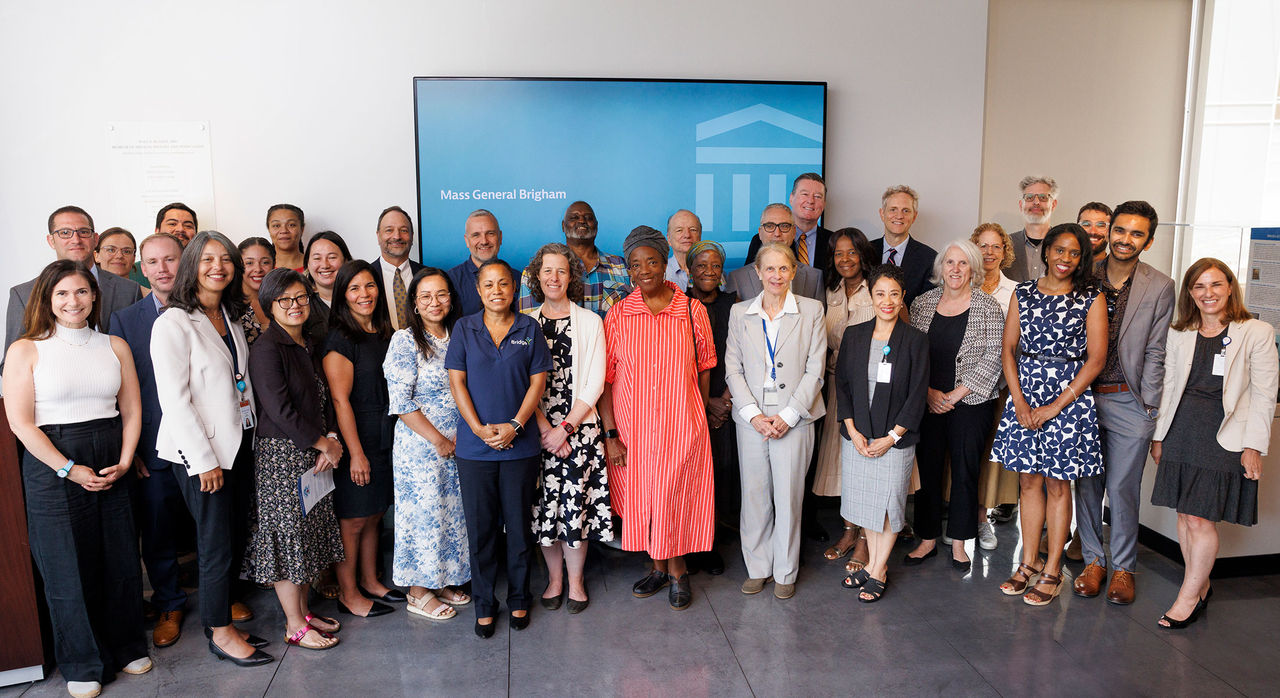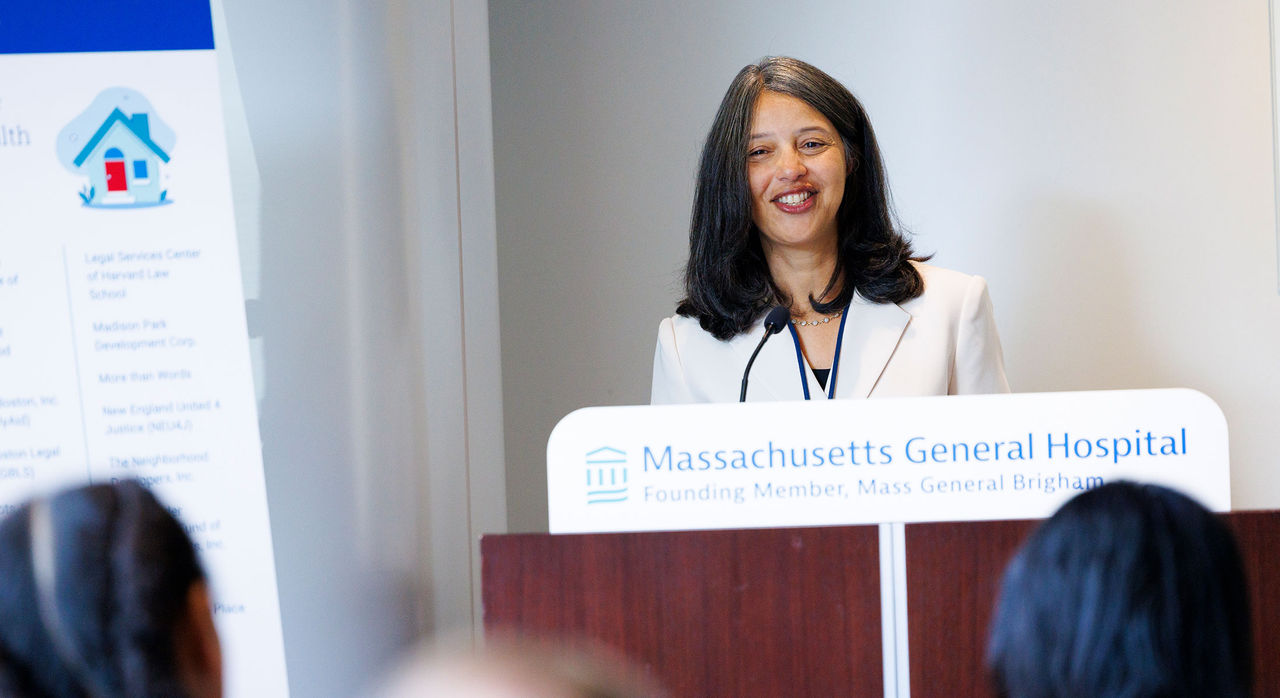-
- Find Care
-
- Visitor Information
- Find a Location
- Shuttles
- Visitor Policies
-
-
-
- Our Virtual Care Options
- Virtual Urgent Care
- Virtual Visits for Primary & Specialty Care
- Online Second Opinions
- Participate in Research
-
- Contact us
-
- For Innovators
- Commercialization Guide for Innovators
-
-
- Research News
- Alzheimer's Disease
- Artificial Intelligence
-
- Overview
-
- Overview
- Getting Started
- New to Mass General Brigham
- International Patient Services
- What Is Patient Gateway?
- Planning Your Visit
- Find a Doctor (opens link in new tab)
- Appointments
- Patient Resources
- Health & Wellness
- Flu, COVID-19, & RSV
- Billing & Insurance
- Financial Assistance
- Medicare and MassHealth ACOs
- Participate in Research
- Educational Resources
- Visitor Information
- Find a Location
- Shuttles
- Visitor Policies
- Find Care
-
- Overview
- Our Virtual Care Options
- Virtual Urgent Care
- Virtual Visits for Primary & Specialty Care
- Online Second Opinions
-
- Overview
- Participate in Research
-
- Overview
- About Innovation
- About
- Team
- News
- For Industry
- Venture Capital and Investments
- World Medical Innovation Forum (opens link in new tab)
- Featured Licensing Opportunities
- For Innovators
- Commercialization Guide for Innovators
- Contact us
-
- Overview
- Information for Researchers
- Compliance Office
- Research Cores
- Clinical Trials
- Advisory Services
- Featured Research
- Two Centuries of Breakthroughs
- Advances in Motion (opens link in new tab)
- Brigham on a Mission (opens link in new tab)
- Gene and Cell Therapy Institute
- Research News
- Alzheimer's Disease
- Artificial Intelligence
-
- Overview
-
- Overview
- Residency & fellowship programs
- Brigham and Women's Hospital
- Massachusetts General Hospital
- Mass Eye and Ear
- Newton-Wellesley Hospital
- Salem Hospital
- Integrated Mass General Brigham Programs
- Centers of Expertise
- Global & Community Health
- Health Policy & Management
- Healthcare Quality & Patient Safey
- Medical Education
- For trainees
- Prospective trainees
- Incoming trainees
- Current trainees
- Continuing Professional Development
Massachusetts General Hospital Selects Local Organizations to Receive $18M in Funding for Affordable Housing Initiatives
- grant-recipients
- elsie-taveras
Massachusetts General Hospital (MGH), part of the Mass General Brigham healthcare system, announced today that $18 million in Community Health Impact Funds have been awarded to 22 local organizations to support affordable housing initiatives in Boston and North Suffolk County.
The Phillip and Susan Ragon Building, a multi-year construction project that will result in a state-of-the-art clinical care building on the MGH campus, triggered this landmark investment through the Massachusetts Determination of Need (DoN) process. This DoN investment—totaling more than $62 million dollars—is the largest in Massachusetts history.
“The evidence is clear: a lack of access to stable housing leads to inequitable health outcomes,” said Anne Klibanski, MD, President and CEO of Mass General Brigham. “The new Ragon Building will help ensure that our patients receive the care they deserve, while the Community Health Impact Funds will help boost quality, safe and affordable housing in the communities we serve.”
The organizations selected are:
- Boston Affordable Housing Coalition DBA Mass Alliance of HUD Tenants (MAHT)
- Boston Tenant Coalition (BTC)
- Bridge Over Troubled Waters
- Chinese Progressive Association
- Citizens' Housing and Planning Association
- City Life Vida Urbana DBA Revival, Inc.
- CIty of Boston Mayor's Office of Housing
- Dudley Street Neighbordhood Initiative
- FamilyAid Boston, Inc. DBA FamilyAid
- Greater Boston Legal Services (GBLS)
- GreenRoots, Inc.
- HarborCOV
- HomeStart, Inc.
- Homes for All Massachusetts (HFA-MA)
- Legal Services Center of Harvard Law School
- Madison Park Development Corp.
- More Than Words
- New England United 4 Justice (NEU4J)
- The Neighborhood Developers, Inc.
- Transgender Emergency Fund of Massachusetts, Inc.
- Urban Edge
- Women's Lunch Place
“Housing insecurity and substandard housing are strongly linked to health conditions like cardiovascular disease, asthma, and chronic stress,” said David Brown, MD, Mass General Brigham’s President, Academic Medical Centers. “We are so pleased for the opportunity to invest in and partner with these community-based organizations offering life- and health-altering solutions to the housing crisis in Suffolk County.”
"The City of Boston is grateful that Mass General Brigham has committed $18 million towards solving housing related issues in Boston. Stable housing is fundamental to health outcomes, and these funds will shape better health for many Boston residents," said Mayor Michelle Wu. "MGB's commitment to the new Acquisition Opportunity fund will allow the City to acquire and preserve affordable housing throughout Boston by taking it off the speculative market. It is an innovative way for us to combat displacement, and it will have a positive impact on the city and its residents for generations to come."
Following more than a year of thoughtful consideration and rigorous deliberation, the MGH Community Advisory Board (CAB), guided by the community-driven 2022 Community Health Needs Assessment, identified four Community Health Impact Funds priorities. The $18M housing allocation is the first to be rolled out, with funding opportunities for the other three priorities—mental and behavioral health, economic mobility and financial stability, and food insecurity—being released this spring and summer.
A 12-member Housing Allocation Committee, comprised of community leaders and housing experts from local and state government, public agencies, non-profits, and the philanthropic community, selected the awardees. The decisions were based on creative, community-centered, impactful proposals addressing at least one of the three strategies determined by the CAB: production and preservation of affordable housing, eviction prevention, and support for community development corporations and other non-profit development organizations.
“We are so grateful for the dedication and commitment of our CAB and Housing Allocation Committees,” said Elsie Taveras, MD, MPH, Mass General Brigham Chief Community Health and Health Equity Officer. “As community leaders and experts in community-based housing challenges and solutions, these committee members engaged in a thoughtful, data- and community-informed process to fund those proposals aimed at achieving the greatest community health equity impact.”
“The housing crisis in our state and across the country is felt most acutely in historically marginalized communities,” said Leslie Aldrich, MPH, Mass General Brigham’s Executive Director for Community Health. “The 22 proposals chosen reflect an equitable, multi-pronged approach to benefitting those most impacted by housing insecurity—unhoused populations, LGBTQ+, immigrants, domestic violence survivors, communities of color, and more.”
“We are so honored and thrilled to partner with Mass General Brigham to address a key determinant of optimal health: having a stable home,” said Matt Pritchard, Executive Director of HomeStart, one of the awardees. “Plus, the downstream cost savings of HomeStart's Eviction Prevention program to the healthcare system, educational systems, and state social services are even more profound.
“Partnership with trusted local organizations is key to addressing the root causes of health inequities to make measurable, sustainable impact,” said Taveras. "This historic investment, combined with Mass General Brigham's comprehensive community health strategy and other community initiatives, aims to fundamentally transform our approach to community health.”
Media contact
About Mass General Brigham
Mass General Brigham is an integrated academic health care system, uniting great minds to solve the hardest problems in medicine for our communities and the world. Mass General Brigham connects a full continuum of care across a system of academic medical centers, community and specialty hospitals, a health insurance plan, physician networks, community health centers, home care, and long-term care services. Mass General Brigham is a nonprofit organization committed to patient care, research, teaching, and service to the community. In addition, Mass General Brigham is one of the nation’s leading biomedical research organizations with several Harvard Medical School teaching hospitals. For more information, please visit massgeneralbrigham.org.
About Massachusetts General Hospital
Massachusetts General Hospital, founded in 1811, is the original and largest teaching hospital of Harvard Medical School. The Mass General Research Institute conducts the largest hospital-based research program in the nation, with annual research operations of more than $1 billion and comprises more than 9,500 researchers working across more than 30 institutes, centers and departments. MGH is a founding member of the Mass General Brigham healthcare system. www.massgeneral.org.

